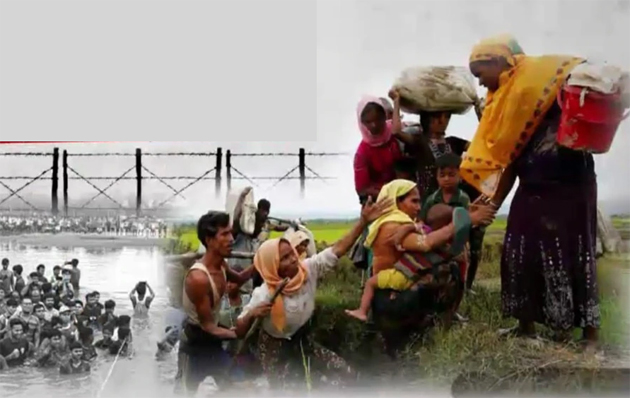winph 99
Cyclacel Pharmaceuticals Announces Its Exploration of Potential Strategic Alternatives and Reduction of Operating CostsWhat we know about the ‘car-sized’ drones spotted near Trump’s New Jersey golf club
Balaji worked at OpenAI for nearly four years before quitting in August. He was well-regarded by colleagues at the San Francisco company, where a co-founder this week called him one of OpenAI's strongest contributors who was essential to developing some of its products. “We are devastated to learn of this incredibly sad news and our hearts go out to Suchir’s loved ones during this difficult time,” said a statement from OpenAI. Balaji was found dead in his San Francisco apartment on Nov. 26 in what police said “appeared to be a suicide. No evidence of foul play was found during the initial investigation.” The city's chief medical examiner's office confirmed the manner of death to be suicide. His parents Poornima Ramarao and Balaji Ramamurthy said they are still seeking answers, describing their son as a “happy, smart and brave young man” who loved to hike and recently returned from a trip with friends. Balaji grew up in the San Francisco Bay Area and first arrived at the fledgling AI research lab for a 2018 summer internship while studying computer science at the University of California, Berkeley. He returned a few years later to work at OpenAI, where one of his first projects, called WebGPT, helped pave the way for ChatGPT. “Suchir’s contributions to this project were essential, and it wouldn’t have succeeded without him,” said OpenAI co-founder John Schulman in a social media post memorializing Balaji. Schulman, who recruited Balaji to his team, said what made him such an exceptional engineer and scientist was his attention to detail and ability to notice subtle bugs or logical errors. “He had a knack for finding simple solutions and writing elegant code that worked,” Schulman wrote. “He’d think through the details of things carefully and rigorously.” Balaji later shifted to organizing the huge datasets of online writings and other media used to train GPT-4, the fourth generation of OpenAI's flagship large language model and a basis for the company's famous chatbot. It was that work that eventually caused Balaji to question the technology he helped build, especially after newspapers, novelists and others began suing OpenAI and other AI companies for copyright infringement. He first raised his concerns with The New York Times, which reported them in an October profile of Balaji . He later told The Associated Press he would “try to testify” in the strongest copyright infringement cases and considered a lawsuit brought by The New York Times last year to be the “most serious.” Times lawyers named him in a Nov. 18 court filing as someone who might have “unique and relevant documents” supporting allegations of OpenAI's willful copyright infringement. His records were also sought by lawyers in a separate case brought by book authors including the comedian Sarah Silverman, according to a court filing. “It doesn’t feel right to be training on people’s data and then competing with them in the marketplace,” Balaji told the AP in late October. “I don’t think you should be able to do that. I don’t think you are able to do that legally.” He told the AP that he gradually grew more disillusioned with OpenAI, especially after the internal turmoil that led its board of directors to fire and then rehire CEO Sam Altman last year. Balaji said he was broadly concerned about how its commercial products were rolling out, including their propensity for spouting false information known as hallucinations. But of the “bag of issues” he was concerned about, he said he was focusing on copyright as the one it was “actually possible to do something about.” He acknowledged that it was an unpopular opinion within the AI research community, which is accustomed to pulling data from the internet, but said “they will have to change and it’s a matter of time.” He had not been deposed and it’s unclear to what extent his revelations will be admitted as evidence in any legal cases after his death. He also published a personal blog post with his opinions about the topic. Schulman, who resigned from OpenAI in August, said he and Balaji coincidentally left on the same day and celebrated with fellow colleagues that night with dinner and drinks at a San Francisco bar. Another of Balaji’s mentors, co-founder and chief scientist Ilya Sutskever, had left OpenAI several months earlier , which Balaji saw as another impetus to leave. Schulman said Balaji had told him earlier this year of his plans to leave OpenAI and that Balaji didn't think that better-than-human AI known as artificial general intelligence “was right around the corner, like the rest of the company seemed to believe.” The younger engineer expressed interest in getting a doctorate and exploring “some more off-the-beaten path ideas about how to build intelligence,” Schulman said. Balaji's family said a memorial is being planned for later this month at the India Community Center in Milpitas, California, not far from his hometown of Cupertino. —————- EDITOR’S NOTE — This story includes discussion of suicide. If you or someone you know needs help, the national suicide and crisis lifeline in the U.S. is available by calling or texting 988. —————-- The Associated Press and OpenAI have a licensing and technology agreement allowing OpenAI access to part of the AP’s text archives.Huawei suppliers to face further US limits under defence bill
have threatened to disrupt one of London’s biggest Christmas events over its sponsorship deal with . Activists have called for a boycott of Capital’s Jingle Bell Ball, which is set to be headlined at the O2 arena next weekend by Coldplay and Katy Perry. There are also plans by pro-Palestine groups to picket the shows, raising fears that militants could try to disrupt the event. The boycott call could place pressure on Chris Martin, Coldplay’s frontman – who has previously expressed concern over the plight of both Palestinian and Israeli civilians – to pull out of the shows. Activists have mounted a long-running campaign of direct action against Barclays over its financial links to defence-industry firms they say provide arms to Israel. Tactics have included and sit-ins at numerous Barclays Bank branches in the wake of Israel’s offensive in Gaza, following the Oct 7 attacks by Hamas. (PSC) has included the Jingle Bell Ball in its boycott of events linked to Barclays and is urging the public to shun the glittering concerts on Dec 7 and 8. Sources have told The Telegraph they will stage a protest outside the ball in the hope of persuading people not to go inside. A spokesman for the PSC told The Telegraph: “We urge people not to attend the Jingle Bell Ball and other events it sponsors as part of our boycott of Barclays. “Barclays is using its support of arts and culture to launder its financial links to military operations in Gaza and give themselves respectability. “Families in Gaza don’t have the freedom or safety to celebrate Christmas and would love to see an end to this conflict.” The boycott promise raises the prospect of direct action by groups such as , which has targeted both Barclays and defence firms over the past year – with activists spraying buildings with paint and occupying premises. Martin, who founded in 1997 with fellow University College London students Jonny Buckland, Guy Berryman and Will Champion, has voiced his concerns over the Gaza conflict. In June, he called for peace between Israelis and Palestinians during the band’s headline Glastonbury show, when they performed a duet with Palestinian singer Elyanna. Martin’s management team did not respond when approached by The Telegraph for comment over the issue of the Barclays boycott and its impact on Capital’s Jingle Bell Ball. Earlier this year, Barclays suspended its sponsorship of all music festivals staged by promoter Live Nation in 2024, including Download, Latitude and the Isle of Wight. The move came after several acts pulled out of the events in protest at the bank’s investment links to arms companies that trade with Israel. Artists including country singer CMAT, metal band Ithaca and comedian Joanne McNally all withdrew from planned slots this summer. Barclays has since hit back at continued calls for a boycott of all its cultural activities, stating: “The protesters’ agenda is to have Barclays debank defence companies, which is a sector we remain committed to as an essential part of keeping this country and our allies safe. They have resorted to intimidating our staff, repeated vandalism of our branches and online harassment.” It added: “The only thing that this small group of activists will achieve is to weaken essential support for cultural events enjoyed by millions. It is time that leaders across politics, business, academia and the arts stand united against this.”



